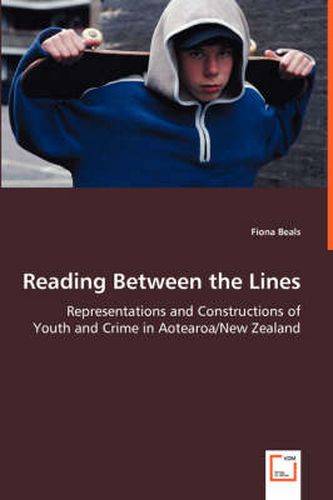Readings Newsletter
Become a Readings Member to make your shopping experience even easier.
Sign in or sign up for free!
You’re not far away from qualifying for FREE standard shipping within Australia
You’ve qualified for FREE standard shipping within Australia
The cart is loading…






This title is printed to order. This book may have been self-published. If so, we cannot guarantee the quality of the content. In the main most books will have gone through the editing process however some may not. We therefore suggest that you be aware of this before ordering this book. If in doubt check either the author or publisher’s details as we are unable to accept any returns unless they are faulty. Please contact us if you have any questions.
Reading Between the Lines examines the ways in which people in New Zealand public institutions talked about youth crime in the 2002 election year. During 2002, people often used ideas of risk and development to construct youth committing crime as effects of psychological risk factors who needed controlling through adult intervention. Reading Between the Lines questions this reasoning by discussing the negative implications of such constructions and arguing for a different way to talk about youth crime, developed from Michel Foucault’s theory of resistance, which gives some agency to young people.
$9.00 standard shipping within Australia
FREE standard shipping within Australia for orders over $100.00
Express & International shipping calculated at checkout
This title is printed to order. This book may have been self-published. If so, we cannot guarantee the quality of the content. In the main most books will have gone through the editing process however some may not. We therefore suggest that you be aware of this before ordering this book. If in doubt check either the author or publisher’s details as we are unable to accept any returns unless they are faulty. Please contact us if you have any questions.
Reading Between the Lines examines the ways in which people in New Zealand public institutions talked about youth crime in the 2002 election year. During 2002, people often used ideas of risk and development to construct youth committing crime as effects of psychological risk factors who needed controlling through adult intervention. Reading Between the Lines questions this reasoning by discussing the negative implications of such constructions and arguing for a different way to talk about youth crime, developed from Michel Foucault’s theory of resistance, which gives some agency to young people.